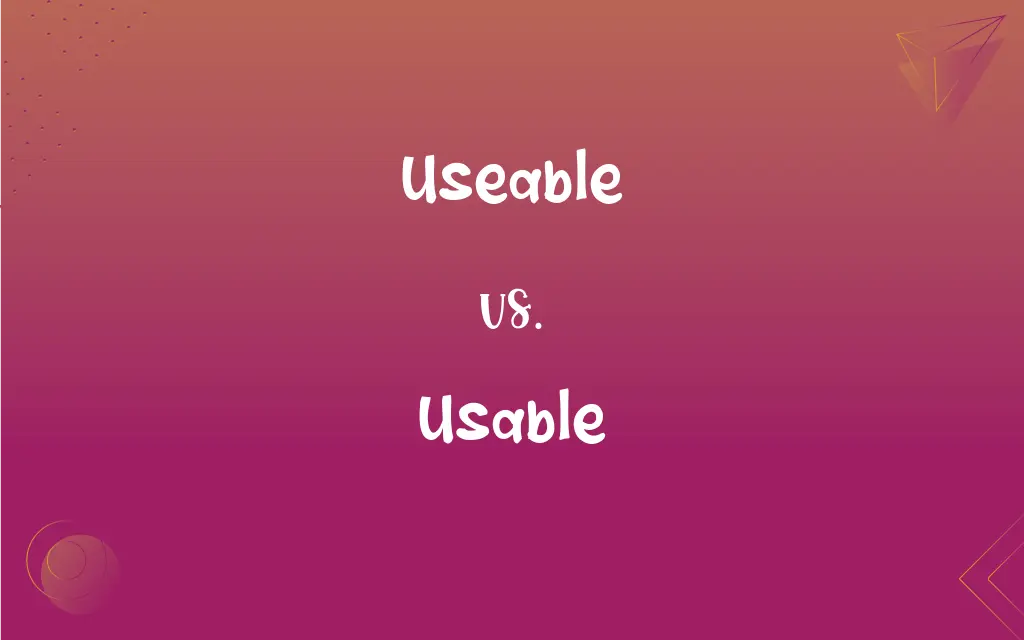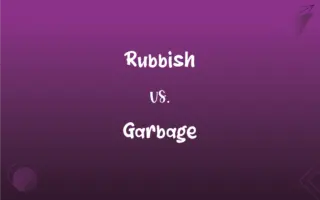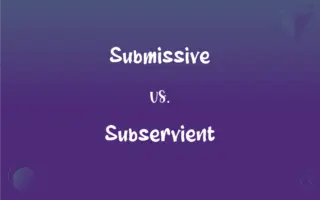Useable vs. Usable: What's the Difference?
Edited by Aimie Carlson || By Harlon Moss || Updated on November 9, 2023
"Usable" means capable of being used effectively; "useable" is a less common variant with the same meaning.

Key Differences
The words "useable" and "usable" are often used interchangeably in English to describe something that can be used. "Useable," although less common, is an alternative spelling that has the same definition. The distinction between the two is mostly a matter of preference and frequency of use, with "usable" being the more prevalent form. "Usable" often appears in technical and design contexts, emphasizing suitability for a purpose, while "useable" might be seen in general contexts without a specific technical connotation.
"Usable" is preferred in American English and is more likely to be found in formal writing, reflecting its status as the standard spelling. "Useable," on the other hand, might appear more frequently in British English, although "usable" is still the dominant form. In terms of meaning, both spellings refer to the quality of being able to be used, but "usable" is the form recommended by most style guides and dictionaries.
In user experience design, "usable" refers to a product's ease of use and learnability. "Useable" could be used in the same context but might be less familiar to the audience. The key is that both spellings convey the same qualities of functionality and accessibility, even though "usable" is the preferred term in professional jargon.
When discussing the condition of an object, "usable" implies that the object is in a state where it can fulfill its intended function. "Useable," while conveying the same meaning, might not be as immediately recognized by readers or listeners due to its less frequent use. Thus, consistency in spelling can aid in clarity and understanding.
"Usable" is often associated with software and technology, indicating that a system is operable and can be interacted with by a user. "Useable" might be understood in the same way, but it could also be perceived as less technically precise due to its relative rarity in technical documentation. In both cases, the underlying concept is that of practicality and the capability for use.
ADVERTISEMENT
Comparison Chart
Spelling Frequency
Less common variant
More common and preferred spelling
Usage in English
Appears occasionally, accepted in general contexts
Dominant in American English, especially in formal writing
Technical Context
Might be seen but less typical
Commonly used, particularly in design and technology fields
Dictionary Listing
Listed as an alternative spelling
Listed as the standard spelling
Perceived Precision
May be seen as less precise, particularly in technical fields
Considered precise and standard in professional contexts
ADVERTISEMENT
Useable and Usable Definitions
Useable
Fit for use.
The old laptop was still useable, despite its age.
Usable
Able to be used effectively.
The new software was usable after the brief tutorial.
Useable
Convenient for use.
The tools were readily useable for the upcoming project.
Usable
Convenient and practical for use.
The ergonomic chair was surprisingly usable and comfortable.
Useable
In a condition to be used.
The library books were useable after being repaired.
Usable
In a suitable state for use.
The equipment was found to be usable after the safety inspection.
Useable
Serviceable; functional.
The donated clothes were useable but out of style.
Usable
Accessible for use.
The company provided usable solutions to the common problems.
Useable
Available for use.
The spare room was useable once it was cleared out.
Usable
Functionally adequate.
The repaired phone was usable, even though the screen was cracked.
Useable
Variant of usable.
Usable
Capable of being used
Usable byproducts.
Useable
Alternative spelling of usable
Usable
Fit for use; convenient to use
Usable spare parts.
Useable
Fit or ready for use or service;
The toaster was still functional even after being dropped
The lawnmower is a bit rusty but still usable
An operational aircraft
The dishwasher is now in working order
Usable
Capable of being used.
Useable
Able to be put to use;
Usable byproducts
Usable
Easy to use; exhibiting good usability.
Useable
Convenient for use or disposal;
The house is available after July 1
2000 square feet of usable office space
Usable
Capable of being used.
Usable
Able to be put to use;
Usable byproducts
Usable
Fit or ready for use or service;
The toaster was still functional even after being dropped
The lawnmower is a bit rusty but still usable
An operational aircraft
The dishwasher is now in working order
Usable
Convenient for use or disposal;
The house is available after July 1
2000 square feet of usable office space
FAQs
Is "useable" a correct spelling?
Yes, "useable" is a correct, though less common, spelling.
Is there any difference in pronunciation between "usable" and "useable"?
No, both are pronounced the same way.
Do "usable" and "useable" have the same meaning in all contexts?
Yes, they both mean capable of being used.
Does "usable" refer only to physical objects?
No, "usable" can refer to both physical objects and abstract concepts like software.
Can "usable" and "useable" be used interchangeably?
Yes, they can be used interchangeably as they have the same meaning.
Will using "useable" be considered an error?
Not typically, but it may depend on the style guide being adhered to.
Is "useable" ever the preferred spelling?
It may be preferred by some individuals or in certain regions, but "usable" is more universally accepted.
Are there any instances where "useable" should not be used?
It's best to avoid "useable" in formal and technical writing where "usable" is the standard.
Which form should I use in professional writing?
"Usable" is recommended for professional writing.
Is "useable" accepted in academic writing?
While "useable" is accepted, "usable" is the preferred form in academic writing.
Is "usable" a newer form than "useable"?
No, both forms have been in use for a long time, but "usable" is now more common.
Does the context of use affect which spelling to choose?
"Usable" is more common in technical and design contexts.
Can "useable" be found in dictionaries?
Yes, it is often listed as an alternate spelling.
How should I decide which form to use?
Consider your audience and the formality of the context, but "usable" is generally safer.
Does software usability only pertain to "usable"?
"Usable" is the term most often used in software design, but "useable" could theoretically apply.
Should I correct someone who uses "useable"?
It's not necessary, as it's a matter of stylistic choice rather than correctness.
Is one form more modern than the other?
Not necessarily, but "usable" is currently more widely used.
Does the spelling vary between American and British English?
"Usable" is preferred in both, but "useable" is more likely to be seen in British English.
Are "usable" and "useable" synonymous in legal documents?
Yes, but legal documents typically use the more formal "usable."
Will "useable" be understood by all English speakers?
Likely yes, though "usable" is more commonly recognized.
About Author
Written by
Harlon MossHarlon is a seasoned quality moderator and accomplished content writer for Difference Wiki. An alumnus of the prestigious University of California, he earned his degree in Computer Science. Leveraging his academic background, Harlon brings a meticulous and informed perspective to his work, ensuring content accuracy and excellence.
Edited by
Aimie CarlsonAimie Carlson, holding a master's degree in English literature, is a fervent English language enthusiast. She lends her writing talents to Difference Wiki, a prominent website that specializes in comparisons, offering readers insightful analyses that both captivate and inform.































































